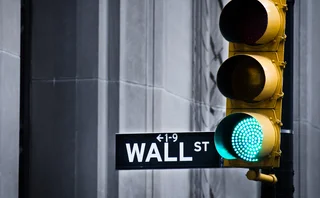
Credit default swaps remain tight despite falling equities
Credit default swap spreads in Europe have remained relatively tight this week despite falling equities. The trend is being supported by the current dislocation between credit and equity, and also continued large issuance of synthetic CDOs, according to credit analysts.
At the same time, the pipeline of synthetic CDOs in Europe is keeping credit default swap levels very tight, said King. “There is a net selling of protection across the board, and this technical factor is also supporting the market.”
The divergence between equities and credit spread performance on some names is prompting some analysts to make trade recommendations for cheap short opportunities. Earlier this week Merrill Lynch recommended that investors buy protection on some of the high quality senior European banks. Relatively cheap protection is currently offered on European banks, including Ireland's AIB, and Denmark's Danske Bank, Norway's Den Norske Bank and Sweden's Svenska Handelsbanken. Senior five-year credit default swaps for all four banks are currently in the range of 20-28bp.
Merrill said the shorts are a way of benefiting if credit markets suffer lagged contagion from weak equity markets, and will act as a hedge against further war-related volatility. “If equity markets continue to be very volatile, sooner or later that will probably transmit itself to credit spreads as well,” Chris Francis, a credit derivatives analyst at Merrill Lynch, told RiskNews.
However, JP Morgan’s King sees credit spreads remaining quite tight, with the potential to come in further in the coming weeks. “We think equities will start to recover; war is largely priced in and further downside should be reasonably limited. Unless equities drop another 5% to 10% quickly, we would still think this de-coupling has further to go,” he said.
Credit derivatives traders in London said European insurers were currently the only sector showing strong correlation to the equity market. Five-year credit default swap spreads for benchmark name Allianz were still very wide at around 95/103bp for senior protection.
Other sectors remained relatively stable, but traders noted that towards the end of the week dealers were starting to bid up in credit default swaps, pushing spreads wider in some sectors. Utilities and chemical companies were roughly 4bp to 5bp wider on the week. The cost of credit protection for autos was also pushing wider, with five-year credit default swaps for Daimler Chrysler out around 7bp in trading yesterday, priced at around 145bp-mid today. “We are still at the bottom of the ranges seen in the volatile periods of last year, but it’s looking like the market may become more sensitive to extreme volatility again,” said one trader.
Only users who have a paid subscription or are part of a corporate subscription are able to print or copy content.
To access these options, along with all other subscription benefits, please contact info@risk.net or view our subscription options here: http://subscriptions.risk.net/subscribe
You are currently unable to print this content. Please contact info@risk.net to find out more.
You are currently unable to copy this content. Please contact info@risk.net to find out more.
Copyright Infopro Digital Limited. All rights reserved.
You may share this content using our article tools. Printing this content is for the sole use of the Authorised User (named subscriber), as outlined in our terms and conditions - https://www.infopro-insight.com/terms-conditions/insight-subscriptions/
If you would like to purchase additional rights please email info@risk.net
Copyright Infopro Digital Limited. All rights reserved.
You may share this content using our article tools. Copying this content is for the sole use of the Authorised User (named subscriber), as outlined in our terms and conditions - https://www.infopro-insight.com/terms-conditions/insight-subscriptions/
If you would like to purchase additional rights please email info@risk.net
More on Credit markets
Single-name CDS trading bounces back
Volumes are up as Covid-driven support fuels opportunity for traders and investors
Podcast: Richard Martin on improving credit migration models
Star quant proposes a new model for predicting changes in bond ratings
CME to pass on Ice CDS administration charges
Clearing house to hike CDS index trade fees from July after Ice’s determinations committee takeover
Buy side fuels boom in single-name CDS clearing
Ice single-name CDS volumes double year on year following switch to semi-annual rolls
Ice to clear single-name bank CDSs from April 10
US participants will be able to start clearing CDSs referencing Ice clearing members
iHeart CDS saga sparks debate over credit rules
Trigger decision highlights product's weaknesses, warns Milbank’s Williams
TLAC-driven CDS index change tipped for September
UK and Swiss bank Holdco CDSs likely inclusions in next iTraxx index roll, say strategists
Fears that bumper coupon could skew iHeart CDS payouts
Market pushes for change to auction date amid fears of reduced single-name and index CDS payouts
Most read
- Top 10 operational risks for 2024
- Top 10 op risks: third parties stoke cyber risk
- Japanese megabanks shun internal models as FRTB bites







